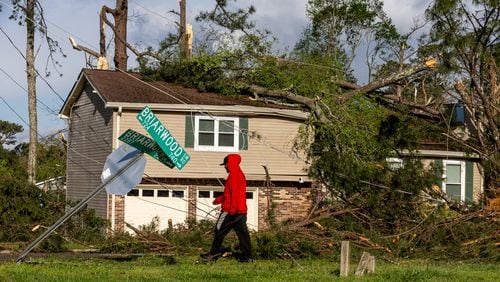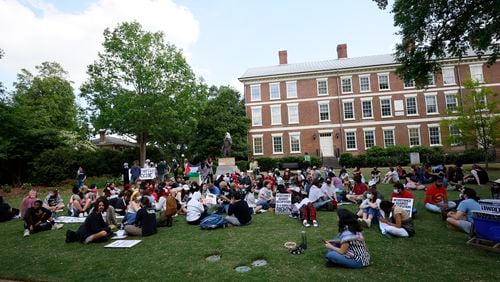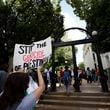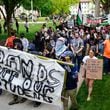Residents and business owners across six Georgia counties pummeled by a severe storm and midnight tornado earlier this month can now apply for a low-interest loan after the federal government declared a wide swath east of Atlanta a disaster area.
The severe weather was part of a system that tore across the Southeast April 2, unleashing at least 16 tornados across a handful of states, including Georgia, where Rockdale County was the hardest-hit. There, a tornado hit the ground southwest of Conyers just before midnight with 115 mph winds and cleaved a path of destruction northeast of Olde Town Conyers for nearly 10 miles.
“My living room has been impaled by a tree,” Conyers resident Carolyn Gillman told The Atlanta Journal-Constitution at the time. Only two minor injuries were reported, both from falling trees, according to law enforcement.
Rockdale had over 300 homes damaged or destroyed, according to Meredith Barnum of the county’s emergency management agency. She said it was the first tornado to hit the county since 1974.
Even outside the immediate path of the tornado, strong winds toppled power lines and uprooted trees, leaving thousands of residents without power.
Renters, homeowners, nonprofits and businesses of all sizes in the affected area are eligible for the loans from the federal Small Business Administration (SBA), which announced major changes to its lending policy last year, citing climate change and inflation. Those changes included more than doubling the loan limit on primary residences from $200,000 to $500,000, and extending the first payment deferment period from five to 12 months.
“The Biden-Harris Administration has prioritized maximizing resources for disaster survivors so that they can successfully recover and build resilience to the effects of climate change that have led to more frequent and costly natural disasters,” Isabella Casillas Guzman, the agency head, said in a statement at the time.
SBA disaster loans are designed to cover personal and business losses not covered by insurance or funding from the Federal Emergency Management Agency (FEMA).
David Eckles, a professor of risk management and insurance at the University of Georgia, wrote in an email that the average homeowners insurance premium is generally increasing.
“Why it is increasing will depend on many things including increased frequency of losses (for whatever reason) as well as increasing cost of materials to repair/replace the home (and contents),” he said.
This most recent disaster was declared for the following counties, where residents and business owners are eligible for the loans: Rockdale, DeKalb, Gwinnett, Henry, Newton and Walton.
Applicants have until June 11 to apply for a physical damage loan, and until Jan. 13, 2025 to apply for what the SBA calls an economic injury loan.
A note of disclosure
This coverage is supported by a partnership with Green South Foundation and Journalism Funding Partners. You can learn more and support our climate reporting by donating at ajc.com/donate/climate/
About the Author







